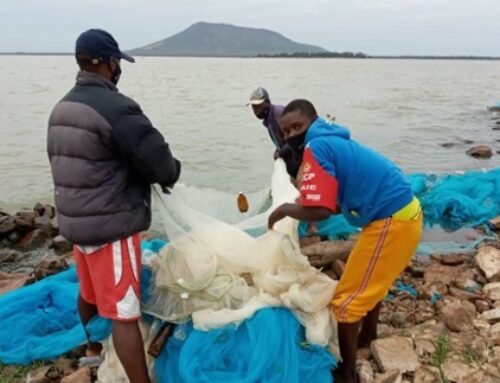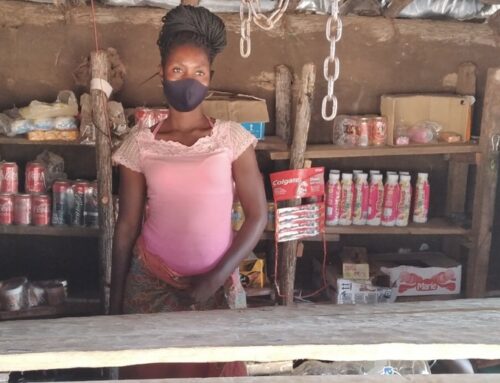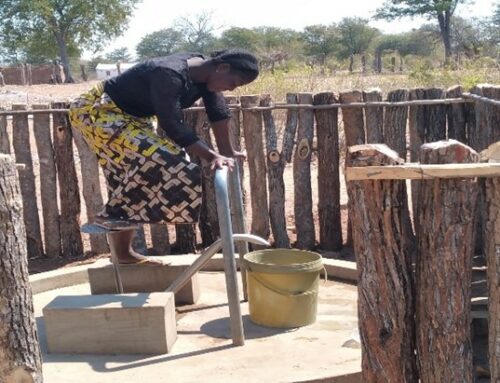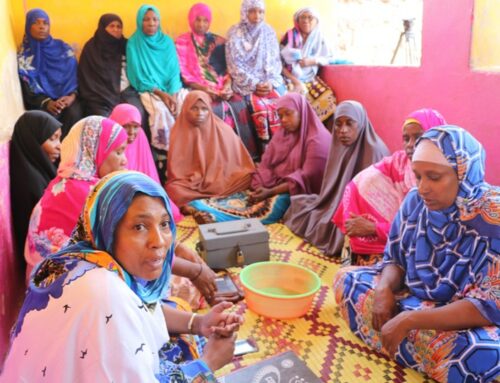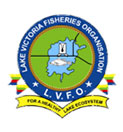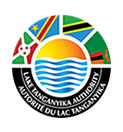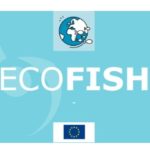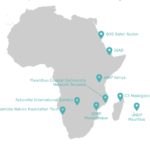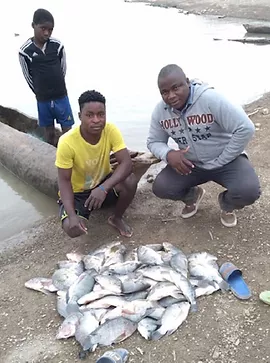
Raste Guibissone’s story shows that ECOFISH’s activities provide fishermen with greater flexibility to negotiate the price of their products in Cahora-Bassa and Magoe districts, in Mozambique.
Raste Guibissone, 23 years old, is married and has two children. He has been working as a fisherman since 5 years ago in the village of Cainaina, Magoe district, in Mozambique, to provide for his family. He dropped out of school in Grade 4 due to a lack of means, and later on, started fishing which he views as an opportunity.
“I invested 2,400 meticais (approximately USD 36) in the purchase of 4 nets and the rental of a canoe to start my activity as a fisherman. In 2018, I bought my canoe to avoid paying 1,200 every month for rental”, explains Raste.
Raste sells his catches on the banks of the Cahora Bassa reservoir to customers coming mainly from Malawi and Zimbabwe. He is earning between 14,000 and 16,000 meticais a month (between USD 220 to 250), while the average monthly income in Mozambique is around US 650. He used his money to meet the basic needs of his family and invest in the purchase of cattle. However, his earnings were too low to provide a reasonable standard of living.
“I could barely make ends meet due to the lack of fish conservation system”,Raste explains. The sale of fish was systematically done in haste to avoid spoiled products. Therefore, Raste was often forced to accept ridiculous prices.
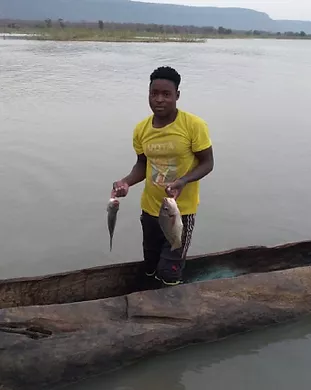
Raste’s situation is not unique, 245 fishermen were faced with the same issue in Cahora-Bassa and Magoe districts in Mozambique.
Thanks to a grant from the European Union, received through E€OFISH Programme, ADPP Mozambique has offered a solution to this problem by setting up trade outlets for fishermen. These markets provide local communities with a refrigeration and packaging system for their catch. As a result, fishermen have more leeway to negotiate the selling price of their products.
“I now have the opportunity to increase my earnings,” says Raste. He no longer needs to sell off his catches to avoid spoiling them. He can keep them a little longer and sell his fish at a better price.
The ADPP initiative with ECOFISH Programme aims to promote sustainable small-scale fishing through community capacity-building on natural resource management capacities, improved infrastructure, and better integration into fish value chains. To this end, ADPP Mozambique has developed a series of activities, such as the creation and legalization of Fishermen’s Clubs, support in establishing contacts with potential fish buyers, etc.
